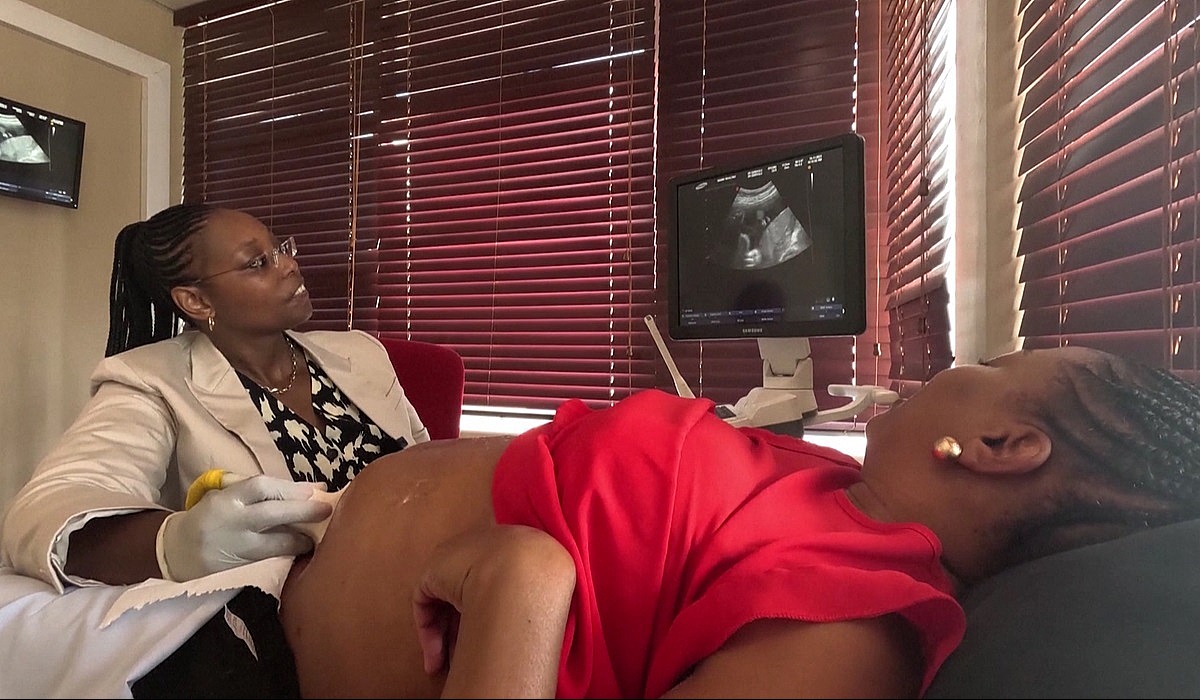In South Africa, the critical issue of maternal healthcare has long been overshadowed by challenges such as limited access to life-saving technologies, particularly ultrasounds. The World Health Organization (WHO) reports a staggering 6,500 maternal deaths annually worldwide, with a significant majority occurring in Africa. However, the tide is turning, and modern technologies, particularly artificial intelligence (AI), are emerging as a beacon of hope. Not only do they promise to reduce maternal mortality rates, but they also hold the potential to lower treatment costs significantly. This article delves into the transformative role of AI in the South African healthcare sector, shedding light on its ability to increase access to life-saving technology while concurrently reducing financial burdens.
Mammy Mahlong, an expectant mother, shares her personal experience of the transformative power of AI in maternal healthcare. Regular visits to a private clinic now include ultrasounds, a luxury she couldn’t afford during previous pregnancies. Reflecting on her past experiences, Mammy highlights the challenges faced by many women who, due to financial constraints, cannot access essential ultrasound services at public hospitals. The burdens of long queues and limited resources often result in missed opportunities for early detection of critical conditions.
WHO data reveals a stark reality – 69% of global maternal deaths in 2020 occurred in Africa. Many of these deaths were preventable, underscoring the urgency to improve access to life-saving technologies like ultrasounds. Dr. Lindiwe Cebekulu, an Obstetrician and Gynaecologist, emphasizes the limitations faced by women relying on the public sector, where access to ultrasounds is restricted. The absence of crucial screenings can lead to undetected abnormalities or life-threatening conditions, contributing to the alarming maternal mortality rates.
Sumitra Nydoo, reporting from Johannesburg, emphasizes AI’s pivotal role in addressing this healthcare disparity. While critical ultrasound machines remain inaccessible due to their high costs, AI applications are bridging the gap. Charles Murito, Director for Sub-Saharan Africa Government Affairs and Public Policy at Google, highlights the potential of AI in making ultrasounds more accessible and affordable for expectant mothers. By utilizing AI tools for scanning ultrasounds, the healthcare sector aims to save lives while reducing financial burdens.
In South Africa, the deployment of technology takes a unique approach. Keith Jones, Co-founder of SW7, notes that while the West uses AI to enhance services for those already served, Africa is leveraging technology to reach the underserved. This paradigm shift emphasizes the inclusive nature of AI applications, aiming to provide healthcare solutions to those who need them the most.
AI’s ability to transform the healthcare sector in South Africa is evident in its potential to increase access to life-saving technologies and reduce treatment costs. As case studies demonstrate promising results, the resistance from some governments highlights the need for continued advocacy. The transformative journey of AI in maternal healthcare offers a glimmer of hope for expectant mothers, marking a paradigm shift in how technology can address healthcare disparities in the African context.









